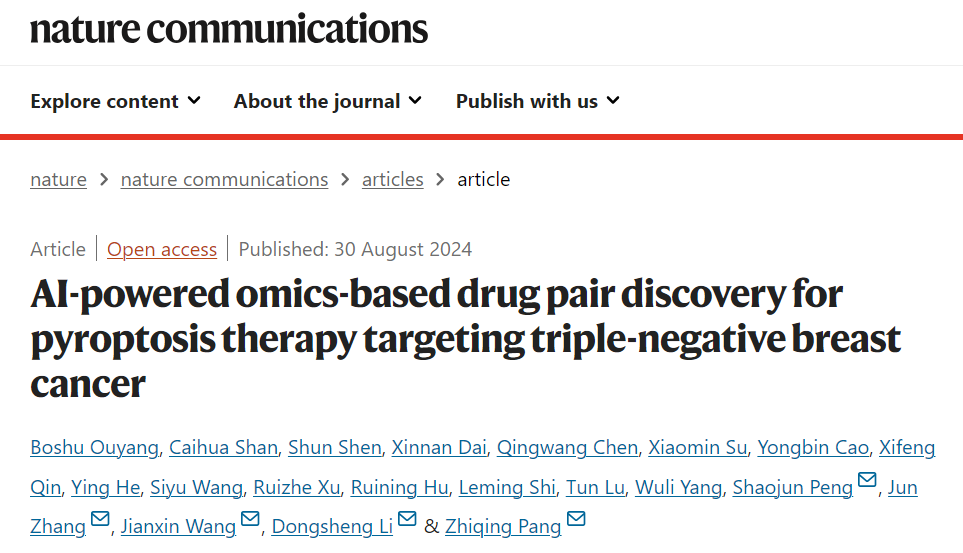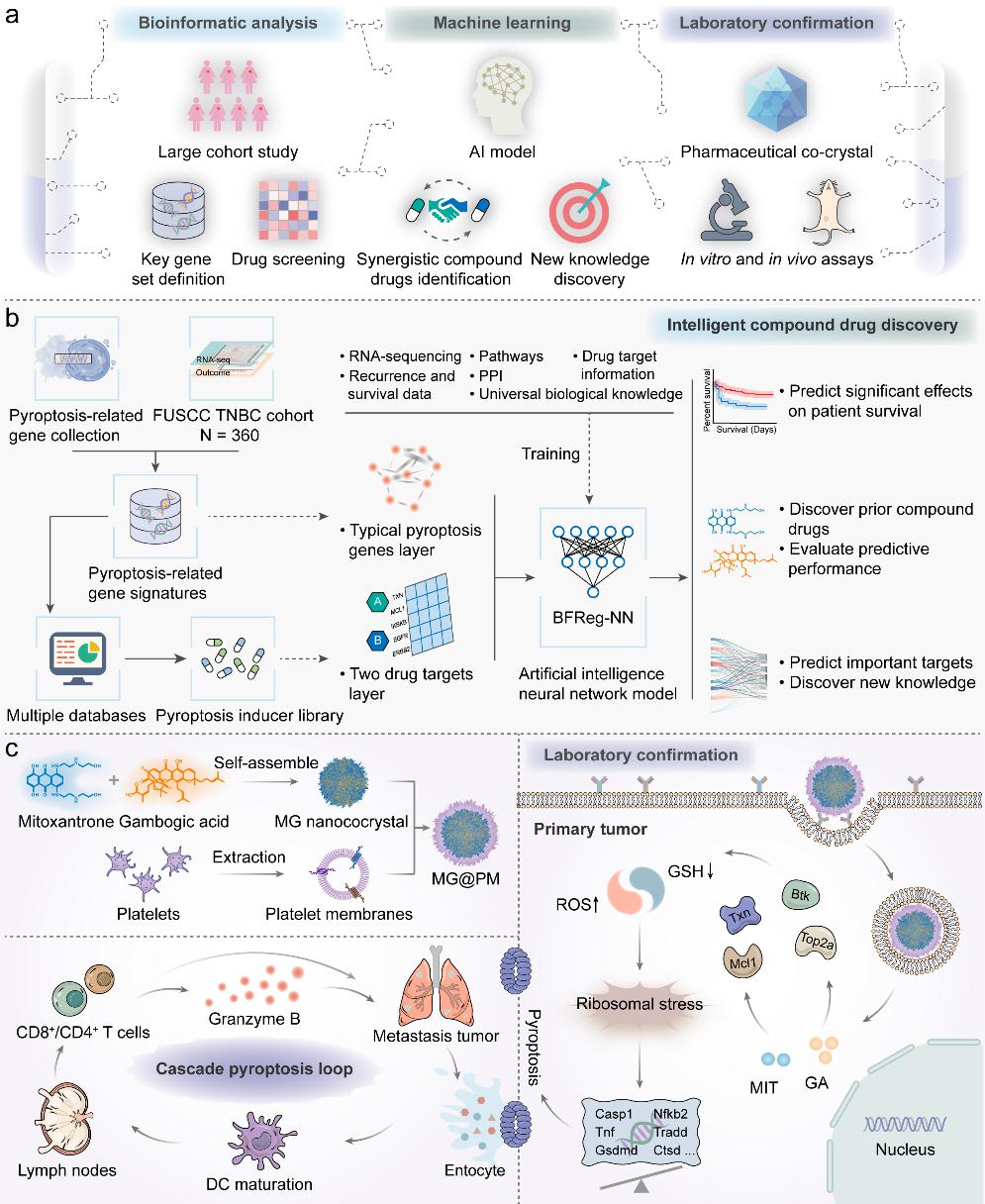

Traditional drug development faces challenges such as low success rates, high costs and lengthy development cycles, which necessitates the adoption of new technologies and models to change the status quo. The application of various omics technologies in patient cohort can reveal patient disease characteristics and individualized responses to treatment. However, the complexity of data forms and the uneven distribution of targets make drug development and precision medicine daunting tasks.
Professors Zhiqing Pang and Jianxin Wang from Fudan University School of Pharmacy, in collaboration with Dr. Dong-Sheng Li's team from Microsoft Research Asia (Shanghai), have developed an intelligent framework for combinatorial drug discovery based on target omics, using pyroptosis treatment of triple-negative breast cancer (TNBC) as a case study. They first explored the genetic landscape of TNBC patients, systematically identified key pyroptosis genes in TNBC, and established a set of potential pyroptosis inducers through drug database mining. AI technology empowers rapid drug development by providing efficient, accurate and biologically interpretable results. The research teams created a neural network model called BFReg-NN for biological factor regulation to quickly screen and optimize combinations of pyroptosis drugs, completing a loop from prediction to theoretical validation.
Subsequently, they adopted a biomimetic nanocrystal strategy to develop a novel formulation of the drug pair mitoxantrone and gambogic acid, named MG@PM, demonstrating strong pyroptosis induction and antitumor immune effects in TNBC models. The study revealed a unique mechanism where the combination drug targets regulate pyroptosis feature genes through ribosomal stress. The pyroptosis cascade effect activated by MG@PM in metastatic tumor models showed potential superior to the clinical regimen of Anti-PD-1/Abraxane. The integrated framework established in this work, which combines big data bioinformatics analysis, artificial intelligence, formulation development and experimental validation, represents a novel methodological approach, reflecting a multidisciplinary research model. This approach has significant implications for repurposing existing drugs, precision treatment of refractory diseases and drug development.

The study titled "AI-powered omics-based drug pair discovery for pyroptosis therapy targeting triple-negative breast cancer" has been published online in the prestigious journal Nature Communications.
Associate Researcher Zhiqing Pang, Professor Jianxin Wang from Fudan University School of Pharmacy, Dr. Dong-Sheng Li from Microsoft Research Asia (Shanghai), Chief Physician Jun Zhang from Huashan Hospital affiliated with Fudan University, and Associate Researcher Shaoyun Peng from Zhuhai People's Hospital are the co-corresponding authors of the paper. The co-first authors are Boshi Ouyang, a jointly trained PhD student from Huashan Hospital and Fudan University School of Pharmacy , Dr. Caihua Shan from Microsoft Research Asia (Shanghai), and Researcher Shun Shen from Pudong Hospital affiliated with Fudan University. This research was supported by the grants from the National Natural Science Foundation of China, the National Major Research Plan, the Basic and Applied Research Foundation of Guangdong Province, the Shanghai Municipal Health Commission's Leading Talent Program in Health and Hygiene, as well as a project fund from Microsoft Research Asia.
Ouyang, B.#, Shan, C.#, Shen, S.#, Dai, X., Chen, Q., Su, X., Cao Y., Qin, X., He, Y., Wang, S., Xu, R., Hu, R., Shi, L., Lu, T., Yang, W., Peng, S.*, Zhang, J.*, Wang, J.*, Li, D.*, Pang, Z*. AI-powered omics-based drug pair discovery for pyroptosis therapy targeting triple-negative breast cancer. Nat Commun 15, 7560 (2024). doi.org/10.1038/s41467-024-51980-9
Link:https://www.nature.com/articles/s41467-024-51980-9